
Canadian Journal of Program Evaluation
Scope & Guideline
Advancing the Art of Program Evaluation
Introduction
Aims and Scopes
- Community-Based Evaluation:
The journal emphasizes evaluations that are rooted in community contexts, focusing on participatory approaches that engage stakeholders and empower communities. - Indigenous Evaluation Practices:
A consistent theme in the journal is the incorporation of Indigenous methodologies and cultural perspectives in evaluation, acknowledging the importance of context and community in evaluation processes. - Evaluation Capacity Building:
The journal highlights the importance of building evaluation capacity among organizations and communities, offering insights into effective training and development programs. - Mixed Methods Approaches:
There is a strong focus on the use of mixed methods in evaluation, combining qualitative and quantitative techniques to provide a comprehensive understanding of program outcomes. - Ethical Evaluation Practices:
The journal promotes discussions around ethical considerations in evaluation, advocating for practices that prioritize integrity, respect, and the well-being of participants. - Innovative Evaluation Techniques:
The journal showcases innovative methodologies and tools for evaluation, including the use of technology and creative engagement strategies.
Trending and Emerging
- Evaluation Capacity Development:
There is an increasing focus on developing evaluation capacity within organizations and communities, emphasizing the need for training and resources to empower stakeholders to engage in evaluation processes. - Indigenous and Culturally Responsive Evaluations:
Emerging themes include a stronger emphasis on Indigenous evaluation frameworks and culturally responsive approaches, recognizing the importance of honoring diverse perspectives in evaluation. - Use of Technology in Evaluation:
Recent papers discuss the integration of technology, such as data collection tools and digital platforms, to enhance participatory evaluation and facilitate engagement with diverse stakeholders. - Ethical and Reflective Practices:
There is a growing trend towards discussions on ethical evaluation practices and reflective methodologies, encouraging evaluators to consider the impacts of their work on communities and individuals. - Sustainability and Long-Term Impact Evaluation:
Emerging themes focus on evaluating the sustainability and long-term impacts of programs, reflecting a broader concern for lasting change and accountability in evaluation efforts.
Declining or Waning
- Traditional Evaluation Frameworks:
There has been a noticeable decrease in papers focusing solely on conventional evaluation frameworks and models, indicating a shift towards more adaptive and context-specific approaches. - Quantitative-Only Methods:
Papers that exclusively utilize quantitative methods without integrating qualitative insights have become less common, reflecting a growing recognition of the value of mixed methods and narrative approaches in understanding complex social phenomena. - Focus on Program Evaluation in Isolation:
There is a waning emphasis on program evaluation conducted in isolation from broader systemic issues, as more discussions integrate evaluation with policy analysis and community development. - Strictly Academic Evaluations:
There seems to be a decline in purely theoretical or academic evaluations that do not address practical implications or community engagement, as the journal increasingly values applied research.
Similar Journals
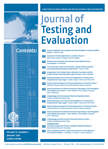
JOURNAL OF TESTING AND EVALUATION
Empowering Professionals with Cutting-edge ResearchWelcome to the JOURNAL OF TESTING AND EVALUATION, an esteemed publication dedicated to the fields of materials science and mechanical engineering, published by the American Society for Testing and Materials. With a history of excellence since its inception in 1973 and a convergence of insightful research extending to 2024, this journal serves as a pivotal platform for disseminating innovative research, methodologies, and findings in testing and evaluation processes. Although it is not an open-access journal, it holds a respectable impact with a ranking in the third quartile across various categories and Scopus ranks, making it an important resource for academic and industry professionals alike. By providing rigorous evaluation of materials and engineering practices, the JOURNAL OF TESTING AND EVALUATION continues to shape the future of research in these dynamic fields, offering vital contributions that are essential for advancing knowledge and practical applications.
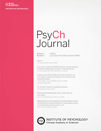
PsyCh Journal
Exploring the Depths of Psychological Understanding.PsyCh Journal, published by Wiley, is a prominent platform in the field of psychology, particularly recognized for its contributions to miscellaneous psychology disciplines since its inception in 2012. With an ISSN of 2046-0252 and an E-ISSN of 2046-0260, this journal has established a substantial reputation within academic circles, currently holding a Q2 category ranking in psychology. Over the years, it has facilitated the dissemination of high-quality research, fostering a deeper understanding of pivotal psychological concepts and practices. As of 2023, it ranks #113 out of 216 in the general psychology category on Scopus, placing it within the 47th percentile. Although not an open-access journal, PsyCh Journal provides necessary access options, ensuring that researchers, students, and professionals can explore its content to enhance their expertise and knowledge in the evolving landscape of psychological research. Set against the backdrop of the United Kingdom, with its headquarters in Hoboken, NJ, this journal thrives on the commitment to advancing psychological science and encouraging innovative approaches in research.
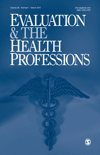
EVALUATION & THE HEALTH PROFESSIONS
Transforming health outcomes with evidence-based evaluation.EVALUATION & THE HEALTH PROFESSIONS is a pivotal peer-reviewed journal published by SAGE PUBLICATIONS INC, focusing on the intersection of evaluation methodologies and health policy practices. Established in 1978 and thoroughly indexed, this esteemed journal spans a rich history of scholarly contributions, with current research aimed at advancing knowledge in health services and evaluation science, making it essential for researchers, practitioners, and policy makers alike. With an impressive Scopus rank of #64 out of 310 in the Health Policy category and a notable 79th percentile ranking, the journal holds a significant position in its field, classified as Q2 in 2023. Although not open access, it provides a wealth of insights, aiming to amplify the understanding of evaluation impact on health practices. As the journal continues to evolve through 2024 and beyond, it remains a crucial resource for those invested in enhancing health outcomes through rigorous evaluation.
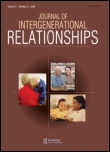
Journal of Intergenerational Relationships
Examining the Past, Present, and Future of Intergenerational RelationshipsThe Journal of Intergenerational Relationships, published by Routledge Journals, Taylor & Francis Ltd, is a premier academic platform dedicated to exploring the dynamic interactions between different generations. With an ISSN of 1535-0770 and E-ISSN of 1535-0932, this journal has established itself as a vital resource in the fields of archaeology, geriatrics, gerontology, sociology, social psychology, and life-course studies. The journal is particularly esteemed for its rigorous research, currently holding a Q1 rank in Archaeology and competitive rankings across various social sciences categories. Its contributions span both theoretical and practical implications, addressing critical issues such as aging, family relationships, and community dynamics. Published continuously since 2003, the journal plays an essential role in academic discourse, offering researchers, professionals, and students insightful analyses and innovative perspectives on intergenerational interactions. While it operates under a subscription-based model, the journal's commitment to advancing knowledge in this vital area ensures it remains a significant touchstone for ongoing research and discussion.

Educade-Revista de Educacion en Contabilidad Finanzas y Administracion de Empresas
Empowering Future Leaders in Accounting and FinanceEducade-Revista de Educacion en Contabilidad Finanzas y Administracion de Empresas is a pivotal platform for research and discourse in the realms of accounting, finance, and business administration. Published by the ASOC ESPANOLA CONTABILIDAD ADMIN EMPRESAS, this journal seeks to advance the academic and professional understanding of these fields through rigorous peer-reviewed articles that encompass theoretical insights, empirical studies, and innovative practices. With an ISSN of 2173-478X, the journal is committed to contributing significantly to the literature and offering invaluable resources for researchers, educators, and practitioners alike. Although it operates under a traditional subscription model, it aims to reach a broad audience, fostering an inclusive dialogue on contemporary issues in education and professional practices. Located in Madrid, Spain, Educade is poised to become an essential read for anyone involved in the dynamic sectors of business and education.
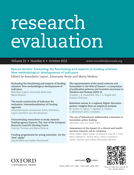
RESEARCH EVALUATION
Fostering a community of rigorous scholarly inquiry.RESEARCH EVALUATION, published by Oxford University Press, stands as a prominent journal in the fields of Education and Library and Information Sciences. With an impressive impact factor, it has earned a distinguished position with Q1 rankings in both categories, reflecting its significant contributions to the scholarly community. The journal, which has been operational since 1991, offers a platform for innovative research and critical analysis that supports the advancement of evaluation methodologies within these disciplines. Its rigorous peer-review process ensures the publication of high-quality, impactful studies that inform practitioners and policymakers alike. Although it operates under traditional access, its esteemed reputation and indexed ranking—#192 in Education and #42 in Library and Information Sciences—underscore its appeal to researchers, professionals, and students seeking to stay at the forefront of research evaluation practices. For those committed to enhancing educational outcomes and improving library and information services, RESEARCH EVALUATION is essential reading in the quest for excellence and insight.

Educational Assessment Evaluation and Accountability
Exploring the nexus of evaluation and educational success.Educational Assessment, Evaluation and Accountability is a prestigious academic journal published by Springer Heidelberg, situated in the Netherlands. With an ISSN of 1874-8597 and an E-ISSN of 1874-8600, this journal is dedicated to advancing the field of educational assessment by disseminating high-quality research on evaluation practices, accountability measures, and their implications on educational institutions. Recognized as a leader in education and organizational behavior, it proudly holds the Q1 quartile ranking in both the fields of education and human resource management, reflecting its influence within the academic community. The journal is indexed in Scopus, ranking #64 out of 1543 in the Education category and #25 out of 230 in Organizational Behavior, placing it in the 95th and 89th percentiles respectively. Researchers, educators, and policymakers will find the journal's emphasis on practical implications of assessment and evaluation vital for enhancing educational outcomes and accountability practices. With its ongoing publication since 2009 and a focus extending through 2024, Educational Assessment, Evaluation and Accountability continues to serve as an essential resource for fostering rigorous dialogue and knowledge-sharing in the evolving landscape of education.
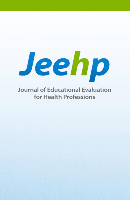
Journal of Educational Evaluation for Health Professions
Empowering educators with cutting-edge insights.The Journal of Educational Evaluation for Health Professions is a premier Open Access journal that has been dedicated to advancing the field of educational evaluation in health professions since its inception in 2004. Published by the Korea Health Personnel Licensing Examination Institute and based in South Korea, this journal holds prestigious positions in the academic community with a remarkable Q1 ranking in both Education and Health Professions (miscellaneous) categories as of 2023. It specifically serves as a vital platform for researchers, professionals, and students engaged in the assessment and enhancement of educational practices in health care training. The journal is indexed in Scopus with impressive rankings, including the top percentile in Health Professions and Education, underscoring its influence and reach within these critical fields. This journal not only shares innovative research but also aims to foster collaboration and dialogue among educators and policymakers to improve health care education globally.
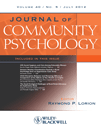
JOURNAL OF COMMUNITY PSYCHOLOGY
Innovating Solutions for Community Well-BeingJOURNAL OF COMMUNITY PSYCHOLOGY, published by Wiley, is a leading academic journal that serves as a vital resource for researchers, practitioners, and students in the fields of community psychology, social psychology, and social work. Established in 1973, the journal emphasizes empirical studies, theoretical advancements, and practical applications relevant to community dynamics and the psychosocial factors influencing communities. With an impressive Q1 ranking in Social Work and a Q2 ranking in Social Psychology as of 2023, the journal continues to be a cornerstone for scholarly discourse, engaging hundreds of contributors and readers worldwide. Although it is not an open-access journal, its impactful research regularly contributes to informed community interventions and policies. The journal is indexed under ISSN 0090-4392 and E-ISSN 1520-6629 and is recognized for its high quality through various metrics, including its Scopus rank of #109 in Psychology - Social Psychology. Researchers and professionals alike will find invaluable insights and cutting-edge findings within the pages of this esteemed publication.
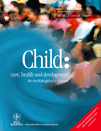
CHILD CARE HEALTH AND DEVELOPMENT
Pioneering research for nurturing young minds.Child Care Health and Development is a prestigious journal published by Wiley, dedicated to advancing the fields of child health and developmental psychology. With a rich publication history spanning from 1975 to 2024, this journal holds significant influence and credibility, illustrated by its impressive ranking in diverse categories such as Q1 in Pediatrics, Perinatology and Child Health and Q2 in Developmental and Educational Psychology as of 2023. The journal serves as an essential platform for researchers, practitioners, and students, promoting interdisciplinary studies that address pressing issues in child care, health, and development. While currently not an open-access journal, it still provides critical insights into public health and environmental factors affecting children, evidenced by its Scopus rankings. The journal is published in the United Kingdom and continues to impact the academic community by fostering knowledge dissemination and supporting practices that enhance the welfare of children globally.